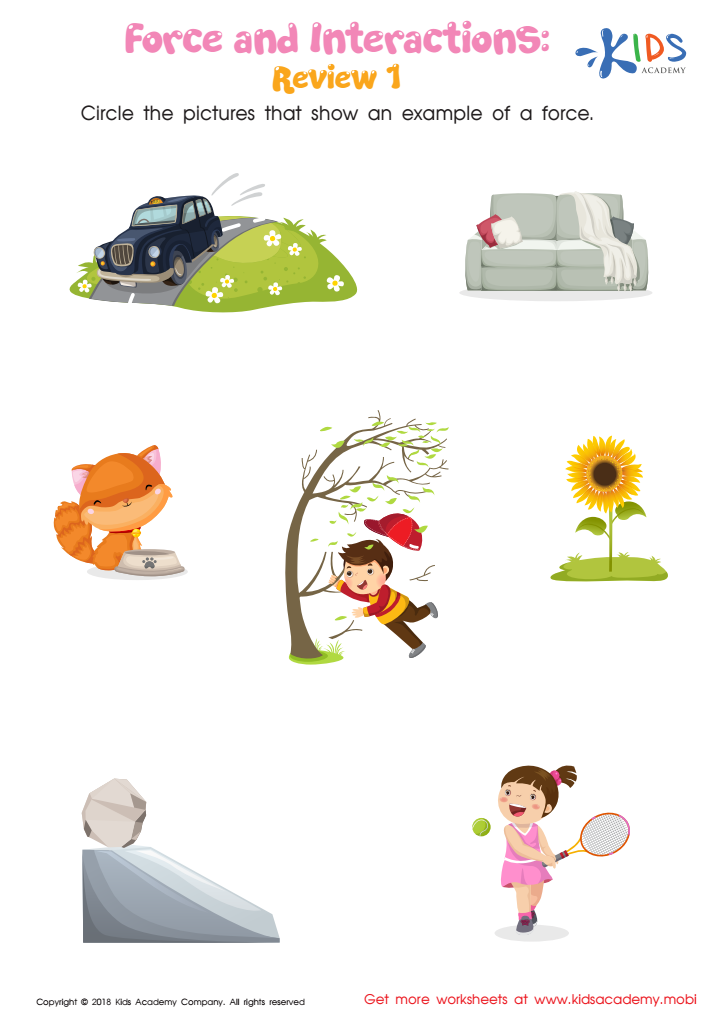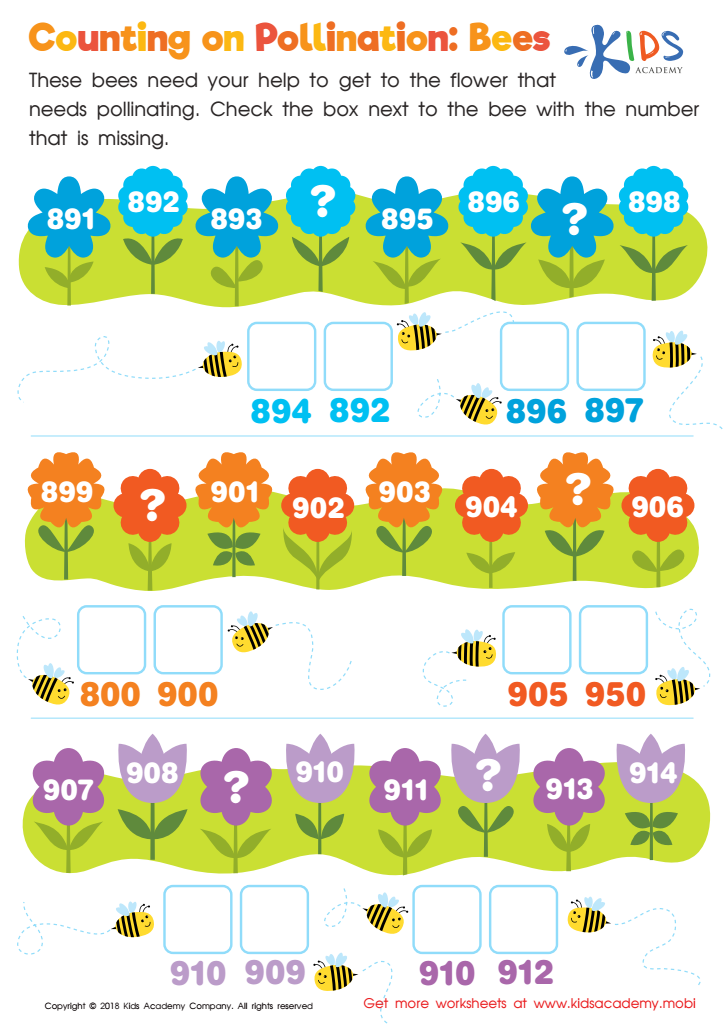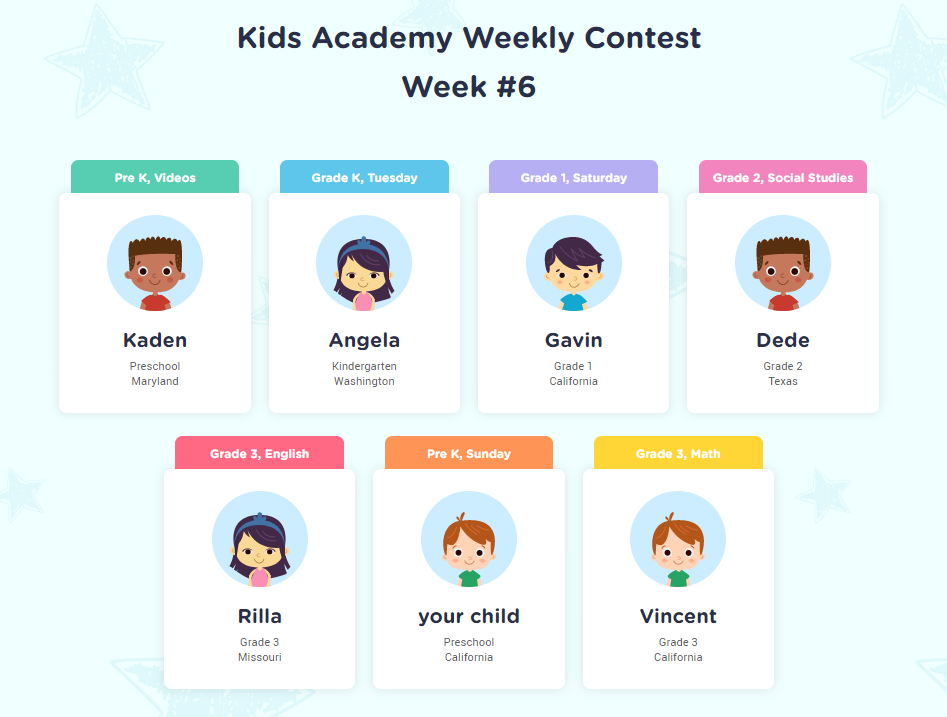Counting practice Normal Science Worksheets for Ages 5-7
3 filtered results
-
From - To
Enhance your child's counting skills with our engaging Counting Practice Normal Science Worksheets, designed for ages 5 to 7! These worksheets seamlessly blend fun with learning, allowing young minds to explore basic scientific concepts while practicing numbers. Each activity encourages critical thinking through vibrant visuals and hands-on exercises that make counting enjoyable. Your child will strengthen their mathematical abilities by connecting counting to real-world scientific scenarios. Ideal for home or classroom use, these expertly crafted worksheets foster a love for science and math. Dive into a world of discovery and help your little explorer master their counting skills with ease!


Force and Interactions: Assessment 1 Worksheet


Force and Interactions: Review 1 Worksheet


Counting on Pollination: Bees Worksheet
Counting practice, particularly in the context of Normal Science, is crucial for children aged 5-7 as it lays the foundation for their mathematical understanding and critical thinking skills. At this age, children are naturally curious and engaged in exploration, making it an ideal time to incorporate fundamental counting concepts.
Understanding counting within a scientific framework helps children grasp essential principles like measurement, data collection, and classification. By engaging in hands-on activities that mix counting with observation, children develop not just mathematical skills but also the ability to think analytically. This enhances their problem-solving capabilities and promotes a love of learning.
Moreover, integration of counting practice into Normal Science fosters cognitive development. Children learn to categorize objects, make comparisons, and recognize patterns—skills that are critical in both math and science. As they practice counting through experiments and exploration, they also develop vocabulary, language skills, and comprehension abilities.
Parents and teachers play a pivotal role in nurturing these skills through playful, interactive, and experiential learning. By prioritizing counting practice in a scientific context, they guide children toward becoming curious, competent learners—settings the stage for future academic success and lifelong curiosity.
 Assign to My Students
Assign to My Students




















